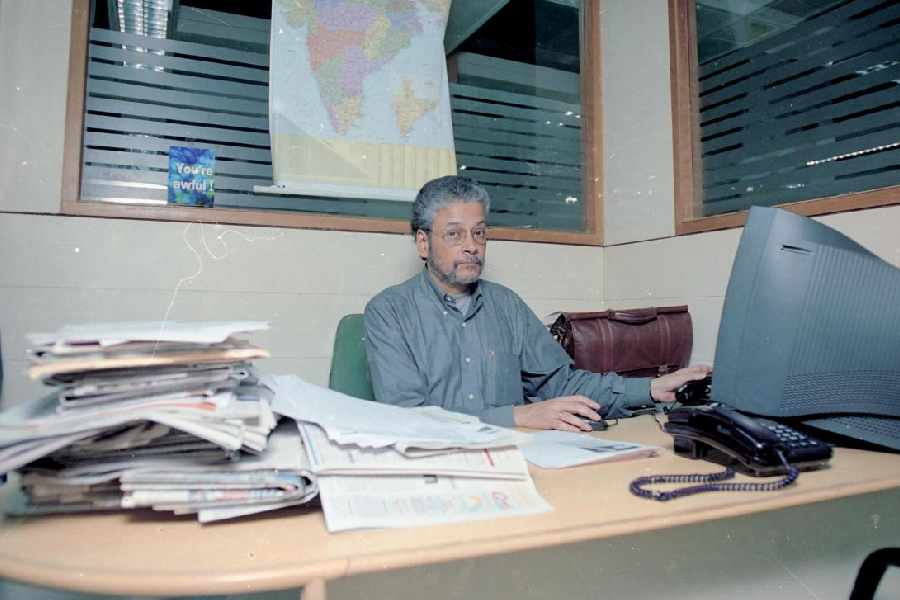The voice wore aviator shades, came down at me from six-feet high and had a ring of affectionate authority: “Why did you throw it away?” It was the cigarette I had hurriedly discarded, mortified that I had been caught smoking by the boss on the street outside the office. “I am sorry,” I mumbled, a little shaken and not knowing where to look. “Take one,” the voice said, gently and assuringly, and fished out a pack of king-size cigarettes, “Nothing to be scared of.” It was my first day at this newspaper, and lighting up that cigarette verily became my first act under the instructions of my editor.
Deepayan Chatterjee — probably the most mild-mannered, calm and handsome man to have helmed the newspaper — had nothing outwardly intimidating about him. But generations of reporters and desk hands who had the fortune of working with him would agree that Deepayanda was held in reverential awe.
A stickler for logic and language in copy — he had a unique manner of rejecting copy by tossing away printouts with a flick of his slender fingers — reporters and desk hands would think several times before submitting their work to him. I recall multiple instances of seniors in the newsroom returning to their workstations from his cabin and settling down to rework their stories.
Deepayanda was probably aware he carried a slightly forbidding air around him. Reporters whose work he tirelessly rewrote night after night, his fingers floating across the keyboard like a pianist’s, were likely most aware of it and daunted by it. That’s why he’d walk the extra mile — to share a smoke with a rookie or strike up newsroom conversations over this or that — to make them comfortable.
I came from an economics background. It was solely because of his encouragement that I pursued so many stories I may never have thought of, be it on dubious statistics on the Bengal economy during the Left era or the tectonic shift in Indian societal habits from that of thrift to profligacy.
Many colleagues will have memories to share on how Deepayanda prodded them to pursue stories that benefitted the newspaper and boosted their own confidence. It is way beyond the scope of this tribute and this space to do justice to the many aspects of his contribution to our craft.
If he was a martinet about work, Deepayanda was also humane after his own fashion. He would seek regular updates on the newly-born babies from fathers and mothers in the newsroom. I remember his assuring presence at the hospital the day my wife gave birth to our twins.
A theatre artist and an esraj player in his younger days, Deepayanda kept expanding the scope of his interest. To read the original works of Gabriel García Márquez, he began taking lessons in Spanish after turning 50.
His career took off in an era after liberalisation that coincided with a boom in the pink newspaper space, but Deepayanda, already in a leadership role in Business Standard, chose to spend his lifetime in the same organisation, the ABP Group. I was at the receiving end of his stoic silence after I quit The Telegraph to explore options in the world of electronic media. Later, though, he was gracious enough to welcome me back to the newspaper and continue his mentorship.
Deepayanda never liked to see people go. He left us late on Monday night. How we rue it that he himself is now gone.

